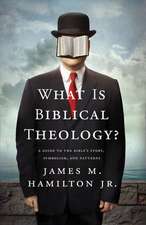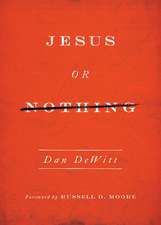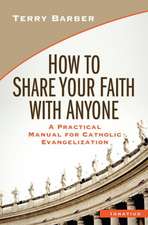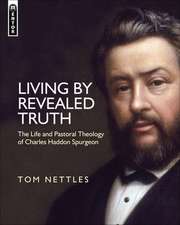John Owen: Reformed Catholic, Renaissance Man: Great Theologians Series
Autor Carl R. Truemanen Limba Engleză Paperback – 18 sep 2007
Preț: 416.44 lei
Nou
Puncte Express: 625
Preț estimativ în valută:
79.69€ • 83.04$ • 65.98£
79.69€ • 83.04$ • 65.98£
Carte tipărită la comandă
Livrare economică 03-17 aprilie
Preluare comenzi: 021 569.72.76
Specificații
ISBN-13: 9780754614708
ISBN-10: 0754614700
Pagini: 140
Dimensiuni: 156 x 234 x 8 mm
Greutate: 0.46 kg
Ediția:New ed
Editura: Taylor & Francis
Colecția Routledge
Seria Great Theologians Series
Locul publicării:Oxford, United Kingdom
ISBN-10: 0754614700
Pagini: 140
Dimensiuni: 156 x 234 x 8 mm
Greutate: 0.46 kg
Ediția:New ed
Editura: Taylor & Francis
Colecția Routledge
Seria Great Theologians Series
Locul publicării:Oxford, United Kingdom
Cuprins
Contents: Preface; John Owen: reformed Catholic, renaissance man; The knowledge of the Trinitarian God; Divine covenants and Catholic Christology; The article by which the Church stands or falls; Conclusion; Index.
Notă biografică
Carl R. Trueman is Professor of Historical Theology and Church History at the Westminster Theological Seminary, Philadelphia, USA.
Recenzii
’... a thorough enquiry into its subject's theology, and an often polemical argument favouring its subject's Reformed Catholicity over the short-sighted spirituality of contemporary Evangelicals.’ Church Times ’Thanks to Carl Trueman's handy summary, the labyrinth of Owen's thought has been straightened and made more maneuverable for students venturing into the intricacies of his theological universe.’ Greenbaggins.wordpress.com ’... will profit enthusiastic undergraduates and advanced scholars alike.’ Journal of Ecclesiastical History ’As an introduction to Owen's life and thought as well as his place within the wider corpus of Reformed and Reformation thinking, this book is unlikely to be surpassed: it is well researched, it is well written and it is well worth reading.’ The United Reformed Church History Society Journal ’I recommend this book very highly. Anyone interested in John Owen, the Puritans, the confessional era of Reformed orthodoxy, and historical theology in general should view this as a must read. Trueman provides penetrating analysis of Owen and other relevant primary sources, historical, theological, philosophical, and cultural awareness, and further debunking of the Calvin v. the Calvinists myth. JO, therefore, stands as a much-needed corrective to the historical revisionism that has taken place concerning seventeenth-century Reformed theology.’ Reformed Baptist Fellowship ’The book gives the reader a good overview of Owen's theology and polemical works, and it explains well the context in which Owen wrote.’ Protestant Reformed Theological Journal ’I recommend this book very highly. Anyone interested in John Owen, the Puritans, the confessional era of Reformed orthodoxy, and historical theology in general should view this as a must read. Trueman provides penetrating analysis of Owen and other relevant primary sources, historical, theological, philosophical, and cultural awareness, and further debunking of the
Descriere
John Owen is considered one of the sharpest theological minds of the seventeenth century and a significant theologian in his own right, particularly in terms of his contributions to pneumatology, christology, and ecclesiology. Carl Trueman presents a major study of the key elements of John Owen's writings and his theology. Presenting his theology in its historical context, Trueman explores the significance of Owen's work in ongoing debates on seventeenth century theology, and examines the contexts within which Owen's theology was formulated and the shape of his mind in relation to the intellectual culture of his day - particularly in contemporary philosophy, literature and theology. With the current resurgence of interest in seventeenth century Reformed theology amongst intellectual historians, and the burgeoning research in systematic theology, this book presents an invaluable study of a leading mind in the Reformation and the historical underpinnings for new systematic theology.















